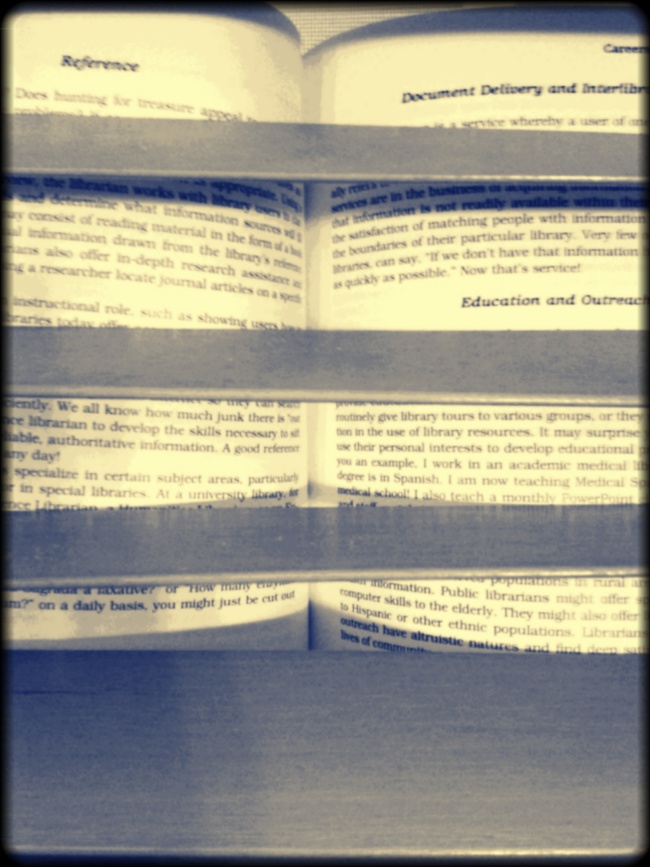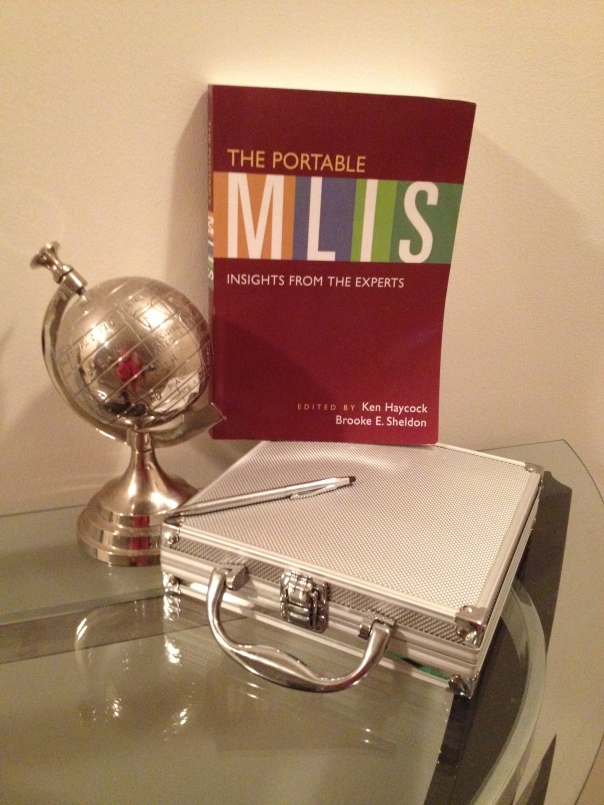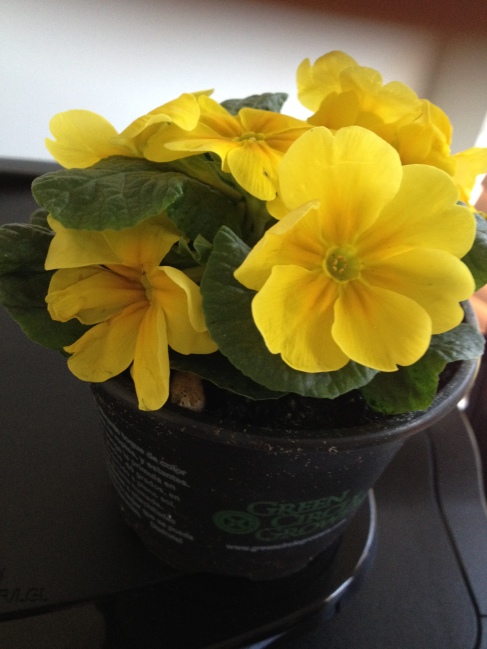Readers, our LIS6010 class was asked to revisit assumptions/assertions about the LIS profession. I believe the following:
1.Llibraries are not behind the times. Again, not only are libraries not behind the times; libraries are in the forefront in many communities providing access to computers and other devices along with usage instruction serving to bridge the “digital divide.” (Parsons and Oja, 2012, p13) Older adults sign up and show up for library sponsored computer classes chipping away at negative labels. ((Moody & Sasser, 2012).
2. The unemployed and homeless are not the only adults who visit libraries. I stand by this statement: While it is true that that library serves as a comfortable refuge for some; it provides a means to lift up another. No resume, no job. No computer. No means to complete an online application. Still, adults come to the library for business and pleasure; they come by themselves or with others. It is not our job to judge…amiable and efficient customer service is expected as well as ethical behavior and professionalism. (Haycock & Sheldon, 2008, p36)
3. I believe it is false that librarians and support workers don’t get along. Many librarians are former support workers. I have been in support positions for years. This personal experience affirms my belief that most professional librarians understand and appreciate the contributions of support workers to the overall success of the library. From the bottom up, no one is insignificant in the library, our success depends of each other.
4. Libraries are not just for school children.
Again, I believe libraries are for everyone. From toddlers to seniors, the library provides life-long learning opportunities. Libraries inform, entertain, inspire, and train people from diverse backgrounds with a variety of interests via classes, programs and age-appropriate tools. Research findings such as the recent Zickuhr, Purcell, and Rainie (March, 2014) Pew report asserts “life stages and special circumstances are linked to increased library use and higher engagement with information…deeper connections are associated with key life moments such as having a child, seeking a job, being a student, and going through a situation in which research and data can help inform a decision.” While the suggestion that “similarly, quieter times of life, such as retirement, or less momentous periods, such as when people’s jobs are stable, might prompt less frequent information searches and library visits may hold true for some, I believe an increase in leisure time will afford many the opportunity to visit their public library for information (perhaps to help make home, health, or other consumer related decisions) and entertainment. For others, the times and traditional stages in which child rearing and educational pursuits take place are changing and stretching across the life span. “The time table of life events varies….” (Moody & Sasser, 2012, p 3) Information needs and solutions will shift accordingly.
Readers, over this semester, my beliefs have been affirmed by the readings and lectures; I have been enriched by the debates whether negative or positive facts and opinions were expressed.
References:
Parsons, J.J. & Oja, D. (2014) New Perspectives on Computer Concepts. Boston, MA: Course Technology.
Moody, H. R. & Sasser, J. R. (2012). AGING: Concepts and Controversies. (7th Ed.) Thousand Oaks, CA: Pine Forge Press.
Haycock K & Sheldon, B. (2008) The Portable MLIS, Westport, CT: Libraries Unlimited
Zickuhr, Kathryn; Purcell, K.; Rainie, L. (March 13, 2014) From Distant Admires to Library Lovers and beyond. Retrieved from blackboard.wayne.edu http://www.pewinternet.org/2014/03/13/summary-of-findings-4/






